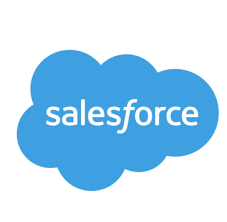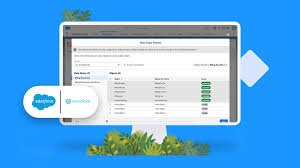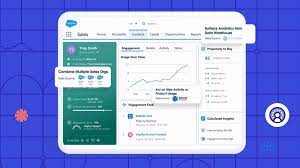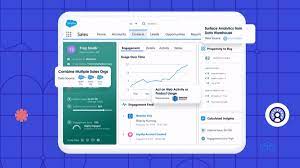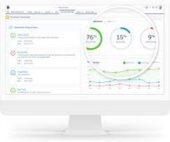Connecting Account Engagement, Marketing Cloud, and Salesforce
Connecting Account Engagement, Marketing Cloud, and Salesforce – the case for all three. A common inquiry we often encounter from clients is: “Should I opt for Salesforce Marketing Cloud or Marketing Cloud Account Engagement?” “How do we choose which one is right for us?” This query may appear peculiar since Marketing Cloud Account Engagement is typically acknowledged as the go-to B2B solution, while Salesforce Marketing Cloud is favored for B2C endeavors. The conventional wisdom suggests that businesses select one of these platforms based on their organizational setup and target demographic. Our perspective on the question at Tectonic diverges from this norm. Depending on your primary marketing channels, it can be highly effective for any business to utilize both platforms! Connecting Account Engagement, Marketing Cloud, and Salesforce Permit me to explain. Marketing Cloud Account Engagement excels in automated email marketing, lead capture via forms and landing pages, and engagement tracking through scoring and grading tools. Moreover, it boasts unequeled integration with Salesforce. Yet, there are instances where marketers require an additional channel to strategically retarget accounts or re-engage with prospects who may have become disconnected from email communication. Marketing Cloud Advertising Studio This is where Marketing Cloud’s Advertising Studio module becomes invaluable. Leveraging Salesforce’s architecture, you can craft a seamless experience for your audience with personalized journeys. The system architecture integrating MCAE for data entry and automated email marketing, Sales Cloud as the CRM and database of record, and Marketing Cloud Connect as the mechanism for triggering targeted ads. Automated Processes The process initiates in Account Engagement upon initial record creation or update. Subsequently, a prospect may enter a MCAE Engagement Studio campaign or journey, trigger an Automation Rule, or prompt a Completion Action. With seamless Sales Cloud integration, the contact record update synchronizes with the CRM, generating or updating a specific Salesforce Report for an Audience. The Marketing Cloud Connector facilitates this activity to trigger an automation in the Marketing Cloud Automation Studio, importing the contact record into a Data Extension. This Data Extension serves as the source for an Audience set up in Advertising Studio, enabling advertising campaigns across digital channels such as Facebook, Google, and LinkedIn. This is just one example of the seamless integration within the Salesforce suite of marketing products! From a user perspective, the familiarity in the look and feel of each platform empowers teams to craft sophisticated journeys without being confined to a single platform. Whether one focus on B2B and the other B2C, or one on prospecting and one on customer communications, there is a time and a place to use both. Connecting Pardot, Marketing Cloud, and Salesforce Together? When is it appropriate to leverage both platforms? Depending on your core marketing channels, for any business it can actually be very effective to use both Salesforce Marketing Cloud and Pardot for great results. Utilizing both Salesforce Marketing Cloud and Marketing Cloud Account Engagement is most suitable for businesses that: Pricing The pricing structure of Marketing Cloud, based on the Studios (features) you require access to, ensures businesses pay a flexible premium tailored to their needs. In this insight, Advertising Studio is showcased to illustrate how Account Engagement and Marketing Cloud can collaborate. However, there are other studios within Marketing Cloud that marketers can leverage for comprehensive marketing campaigns. Other studios within Marketing Cloud include: Intrigued? Consider adopting Salesforce Marketing Cloud and Marketing Cloud Account Engagement)in tandem for a comprehensive, multi-channel automated marketing strategy. The Tectonic team and I are available to assist with Salesforce architecture setup, integration, or serve as an extension of your team to devise effective Marketing Cloud strategies for long-term success. Reach out to us to learn more. The Account Engagement Plus, Advanced, and Premium editions offer a range of features designed to empower marketing teams with sophisticated tools for analyzing performance, implementing automation, and enhancing campaign effectiveness. Let’s break down each edition’s offerings: Account Engagement Plus Edition: Account Engagement Advanced Edition (Includes Einstein AI-powered features): Account Engagement Premium Edition: These editions cater to different levels of marketing sophistication, offering scalable features and capabilities to meet the diverse needs of marketing teams within organizations. Whether it’s advanced analytics, AI-driven insights, or enterprise-grade tools, Account Engagement editions empower marketers to optimize performance and drive business growth effectively. Connecting Account Engagement Marketing Cloud and Salesforce for Distributed Marketing The Distributed Marketing & Marketing Cloud Connect solution offers seamless integration of corporate marketing, employees, channel partners, and brand engagement to ensure cohesive experiences across corporate and partner networks. With this solution, marketers can create and distribute on-brand content using Marketing Cloud. Key features of Distributed Marketing & Marketing Cloud Connect include: Overall, Distributed Marketing & Marketing Cloud Connect simplifies content collaboration, strengthens brand consistency, and facilitates efficient engagement across diverse networks within an organization. This integration of marketing efforts fosters better communication and alignment across all stakeholders involved in brand promotion and customer interactions. By Tectonic Salesforce Marketing Cloud Solution Architect, Shannan Hearne Like Related Posts Salesforce OEM AppExchange Expanding its reach beyond CRM, Salesforce.com has launched a new service called AppExchange OEM Edition, aimed at non-CRM service providers. Read more The Salesforce Story In Marc Benioff’s own words How did salesforce.com grow from a start up in a rented apartment into the world’s Read more Salesforce Jigsaw Salesforce.com, a prominent figure in cloud computing, has finalized a deal to acquire Jigsaw, a wiki-style business contact database, for Read more Service Cloud with AI-Driven Intelligence Salesforce Enhances Service Cloud with AI-Driven Intelligence Engine Data science and analytics are rapidly becoming standard features in enterprise applications, Read more

